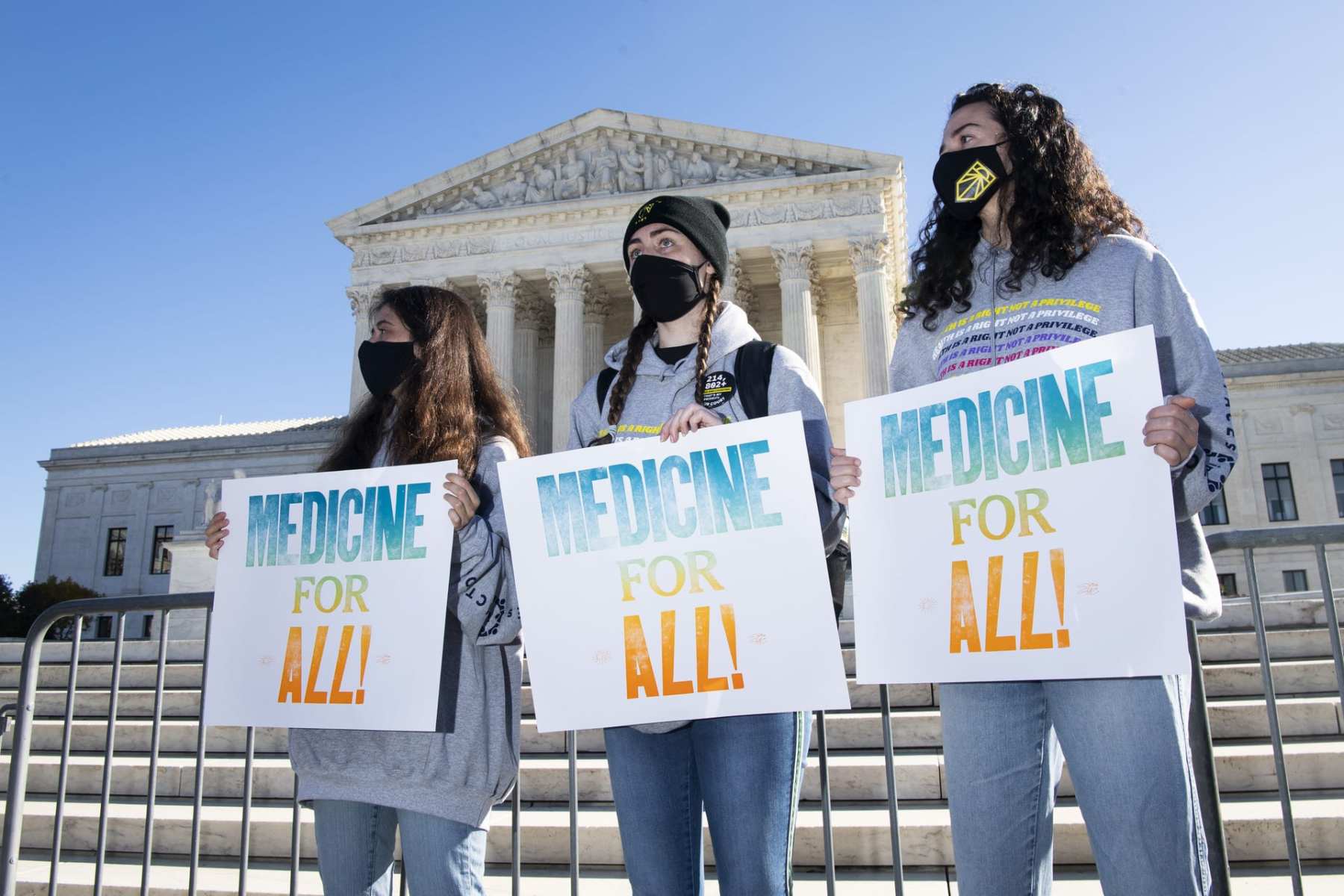We’re the only newsroom dedicated to writing about gender, politics and policy. Subscribe to our newsletter today.
During oral arguments Tuesday, a majority of Supreme Court justices seemed hesitant to strike down the Affordable Care Act, a ruling that could have profound implications for gender-based health care protections.
In the case, California v. Texas, a group of Republican state attorneys general argued that because of their challenge to one provision in the law, the rest of the ACA should be struck down, too. The provision in question comes from President Donald Trump’s 2017 tax law, which set the health law’s individual mandate penalty to $0.
But at least five justices — the court’s liberal trifecta, along with Brett Kavanaugh and Chief Justice John Roberts — expressed skepticism toward that line of thinking.
“This is a very straightforward case for severability under our precedents, meaning that we would excise the mandate and leave the rest of the act in place,” Kavanaugh said.
Following Tuesday’s arguments, legal experts say it’s likely that a minimum of five justices would rule that the mandate can be severed from the health law, leaving the rest of its protections intact. It appears less likely, however, that the individual mandate, also known as the “minimum coverage provision” — which has been a source of controversy since the ACA was passed — will survive the legal challenge.
“There are probably five votes to say the minimum coverage provision as amended is unconstitutional, but the rest of the ACA provisions are severable and therefore stand,” said Leah Litman, an assistant professor of law at the University of Michigan, and co-host of the Supreme Court podcast Strict Scrutiny.
That thinking, experts say, is reflected by the reality of health law: The individual mandate has been non-functional for years, but the rest of the law’s changes have continued uninterrupted.
Still, if the law is struck down, and no replacement legislation put forth, the results could be devastating. The ACA extended health insurance to more than 20 million people. Overturning it would dramatically undercut health care access for women and LGBTQ+ people.
The law prohibited health insurance plans from charging people more or denying coverage because of any pre-existing medical conditions. Prior to the ACA’s passage, women were more likely to have a pre-existing condition, and being transgender was itself often treated as such a condition.
The law also required that private health plans cover pregnancy-related care, contraception without cost-sharing, prescription drugs and mental health care. (Women and LGBTQ+ people have higher rates of anxiety and depression, and are more likely to forego medication because of cost barriers.)
And the law’s expansion of eligibility for Medicaid — which provides insurance for low-income people — has, research shows, particularly benefited pregnant and postpartum people by ensuring that they retain access to insurance after giving birth. Expanded Medicaid has also been seen to benefit trans people, who experience disproportionately higher rates of poverty and were mostly ineligible for the program prior to the ACA’s passage.
“If the entire law is invalidated, very few women and LGBTQ+ people would be untouched.
Everyone stands to lose something,” said Katie Keith, a health law expert at Georgetown University.
It’s unclear what the implications would be if the court strikes down the individual mandate. Keith suggested that the case of the ACA is too singular, and that striking down the mandate wouldn’t necessarily carry much constitutional weight in other cases.
Litman argued otherwise, suggesting that, by eliminating the mandate, the court would be arguing for a much stricter standard of whether or how the federal government can encourage people to do things like enroll in health insurance. That would create a much weaker federal state, which could have long-term implications for something like a coronavirus vaccine, or federal protections for marginalized people.
“The theory the court is about to embrace … would mean Congress can’t enact a vaccine requirement for the country in the midst of the pandemic,” she said. As for women, or other gender minorities, “in the long-term, it could raise serious questions about the federal government’s ability to enact protections for those groups.”






